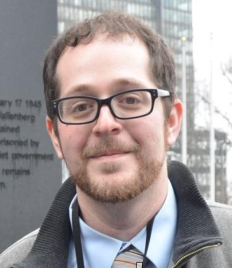A recent Case Western Reserve University Observer editorial accuses the university’s President Eric Kaler of promoting “falsity” and being “misinformed” about the BDS resolution recently adopted by the Undergraduate Student Government (USG). We agree that facts must be central to any discussion of the resolution and the conflict in general. This is why we’re disappointed at the editorial board’s silence over the basic factual errors and egregious omissions in the USG resolution itself. To apply the editorial board’s own words, the resolution “did not even pretend to acknowledge both sides of what, in the end, is a very nuanced situation.” Here are just a few examples.
Begin with the claim in the resolution that a list of corporations “operate private prisons…within Occupied Palestine.” In fact, not only does Israel not have any private prisons, but the Israeli High Court of Justice ruled they are unconstitutional over a decade ago. Perhaps the resolution should instead be celebrating Israel for having such a progressive legal system.
Elsewhere, the resolution depicts Israel as a violator of international law while simultaneously chastising Israel for doing exactly what international law asks. For example, it laments that Israeli military courts have jurisdiction over Palestinians. This is exactly what is expected of an “occupying power.” Geneva Convention IV, which the resolution selectively cites earlier, requires an “occupying power” to maintain order and security in the “occupied territories,” and, as expert on the law of occupation Yoram Dinstein put it, “the government of an occupied territory is military per definitionem.” To impose Israeli civilian rule over “occupied territory” would amount to unilateral annexation, which surely is not what is being asked of Israel by the USG.
The resolution paints a partial, misleading picture of the situation of the Gaza Strip. It references Israel’s blockade, without mentioning that even a U.N. Panel of Inquiry assigned to investigate it determined the blockade was entirely legal in light of the serious terrorist threats emanating from the territory. That Gaza’s entire southern border is with Egypt, which Israel does not control, is also left unmentioned.
Instead of acknowledging that Israel unilaterally withdrew from Gaza in 2005, the USG absurdly claims Israel maintains a discriminatory system in the territory in which the only living Israelis left are two mentally handicapped hostages held by an internationally designated terrorist organization which governs the entire strip of land, much like the Islamic State did for parts of Iraq and Syria.
The resolution also tells us that Israel engages in a “strategy of targeted killings of Palestinians” in which it “presumes the criminal guilt of the target without a trial.” Expecting Israel to exercise police power over a territory (Gaza) in which no Israeli authorities reside is the height of absurdity. Israel is in an international armed conflict with terror organizations that control Gaza, and which are armed and funded by the Iranian regime and devoted to its destruction. To put those terrorist leaders on trial, Israel would have to re-invade the Gaza Strip, which would surely result in much greater death and destruction. Through targeted operations, like the U.S. has done with the likes of al-Qaeda’s Osama bin Laden and Islamic State’s Abu Bakr al-Baghdadi, Israel is able to protect its civilians while limiting collateral damage in Gaza.
The Observer also neglected to mention the history of antisemitism at CWRU, often carried out by the very student groups that fought in favor of the BDS resolution. Indeed, in 2021, an active member of the CWRU Students for Justice in Palestine equated Jews with Nazis, said he never felt closer to Allah “than when i (sic) made this zi*nist at school cry,” and tweeted that he struggles to contain himself when in “close proximity to a zi*nist” while in a coffee shop near two Jewish members of the CWRU community. In 2020, a Jewish student was stalked and menaced by another member of the same organization simply for putting up flyers fact-checking the claims found on pro-BDS flyers around campus.
We do not presume that those who voted in favor of the USG resolution are antisemitic. We do, however, note the misinformation and the grossly one-sided narrative they’ve endorsed, as well as the double standards they’ve applied against the world’s only Jewish state. Perhaps it was out of genuine ignorance. In that case, we hope they will take this opportunity to engage in honest learning, for when genuine ignorance becomes willful, the benefit of the doubt becomes untenable. More importantly, as the Dalai Lama once said, “Where ignorance is our master, there is no possibility of real peace.”
David M. Litman, CWRU Law ’15, is a Senior Analyst at the 65,000-member Committee for Accuracy in Middle East Reporting and Analysis (CAMERA).

William Daroff, CWRU ACS ’95, SGS ’99, Law ‘99, is the Chief Executive Officer of the Conference of Presidents of Major American Jewish Organizations.

Isabel Davidson, CWRU ’21 and ’22, is a former CAMERA on Campus Fellow and currently works in neuroscience research.

